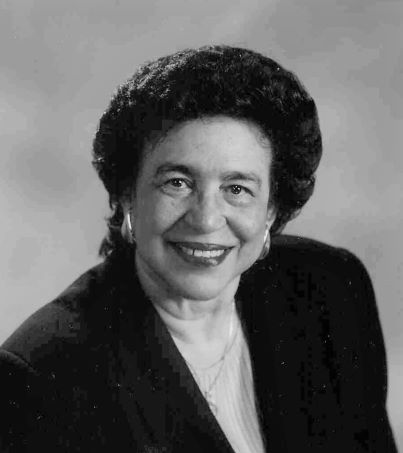
Dolores Margaret Richard Spikes took over as the University of Maryland Eastern Shore’s 11th chief executive Jan. 13, 1997 from William P. Hytche, who urged her to apply for the job.
Hytche and Spikes knew one another from their work as leaders of historically black land-grant institutions.
Spikes became president of her alma mater, Southern University and A&M College (system) in Baton Rouge, La., in 1988. She was the first woman to head a public college in Louisiana.
“I am one who believes that presidents ought not to stay longer than 10 years,” Spikes is quoted as saying in Hytche’s book, “Polishing the Diamond,” a history of the University of Maryland Eastern Shore. “So I am not a long-term president.”
UMES was about to experience a physical transformation when she arrived in Princess Anne. The multi-purpose Hytche Athletic Center (1998) and the Student Services Center (2001), both on the north side of campus, were major projects during her tenure.
Spikes’ appointment as UMES president made her the first woman to hold that title, and the second to lead the institution in its first 125 years. Portia E. Lovett Bird was principal (1897-1899) of Princess Anne Academy, as the university was known when it opened as a secondary school. Spikes also followed one of UMES’ most revered leaders, who in turn held her in high regard.
“She has not missed a step in continuing to uphold the integrity of a university that has fought long and hard for its place in higher education,” Hytche wrote in 2002.
Born Aug. 24, 1936 in Baton Rouge, Spikes’ parents placed a high value on education – and she expressed pride in being among the first black women in the nation to earn a doctorate in mathematics (from Louisiana State University).
“My father had a fourth-grade education, but he loved to read,” she told UMES’ alumni magazine. “He loved education so much that even after his daughters finished college, he went back to get his GED.”
Her mother, who had a 10th-grade education, had a similar attitude. “We never talked about whether we were going to college. We always knew we were going, even though my parents didn’t know where the money was coming from,” Spikes said.
Three UMES’ presidents during its first 125 years have been mathematicians; Spikes, Hytche and John T. Williams. Spikes was the first UMES chief executive to lead the institution who had previous experience as a college president.
Spikes climbed the higher education career ladder at a time when it had more than its share of obstacles. She was outspoken about the lingering effects of segregation and the stereotypes long-associated with historically black colleges.
Ebony magazine named her in 1990 one of the 20 most influential black women in America. In 1994, President Bill Clinton appointed Spikes to a White House board of advisers on historically black institutions.
In a question-and-answer interview in Hytche’s book, she described an encounter with an unnamed Maryland lawmaker, who had boasted about supporting UMES: “We really thank you for the advances, but they were merely a down-payment on a debt long overdue because we still have so many needs,” Spikes recalled telling the lawmaker.
Shortly before stepping down for health reasons in 2001, Spikes spoke of the challenges UMES faces: “We are not done yet with the program. Whoever succeeds me must have the tenacity to keep it going.”
“We can only stop when … people are convinced that they have not ever done right by this institution,” she said.
Spikes died June 1, 2015 in Baton Rouge, La. She was 78.

